Drug deaths in Scotland could rise to new record
- Published
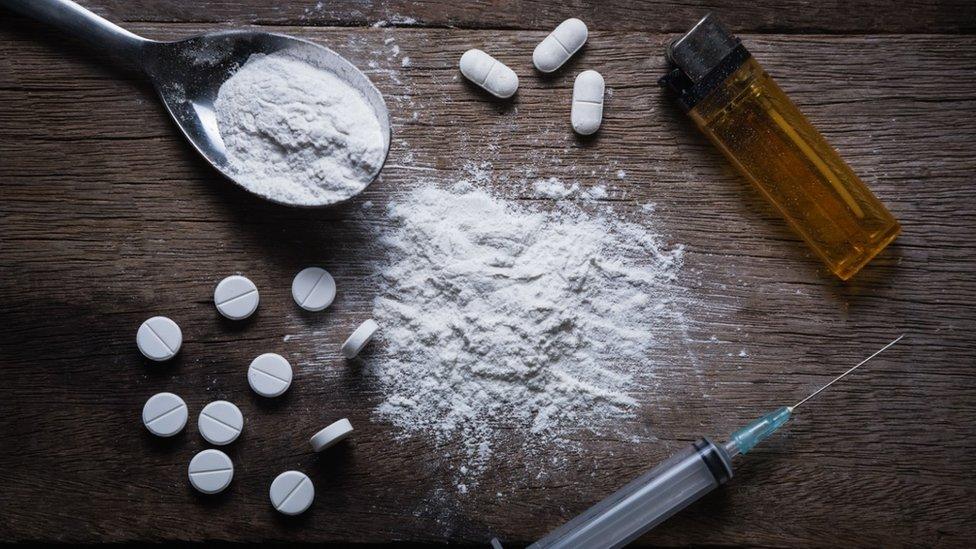
Scotland's drug death total could hit record levels for the seventh year in a row, experts have predicted.
Annual statistics for drug-related deaths in Scotland, to be released on Friday, are expected to show a further rise in the number of overdose deaths.
Lockdown and the Covid pandemic are expected to have had an impact on the figures for 2020.
Some 1,264 people died in 2019 from drug misuse in Scotland - a rate three times higher than the UK as a whole.
Prof Catriona Matheson, who chairs a Scottish government-appointed taskforce set up to tackle the crisis, told BBC Scotland she expected to see a small further increase in the number of people who have died from overdoses.
"I think it will be a bit higher, but I am not anticipating any huge increase," she said.
Prof Matheson also expects to see a continuation of some trends, such as mixing drugs including heroin and benzodiazepine tablets.
She believes that people in the slightly older age group - those with "long-term drug use in a difficult and challenging way using several substances at very high risk" - will continue to feature in the figures.
She also said new treatment standards for drug services would help address inconsistencies in care being offered across the country.

'I give back to society now'
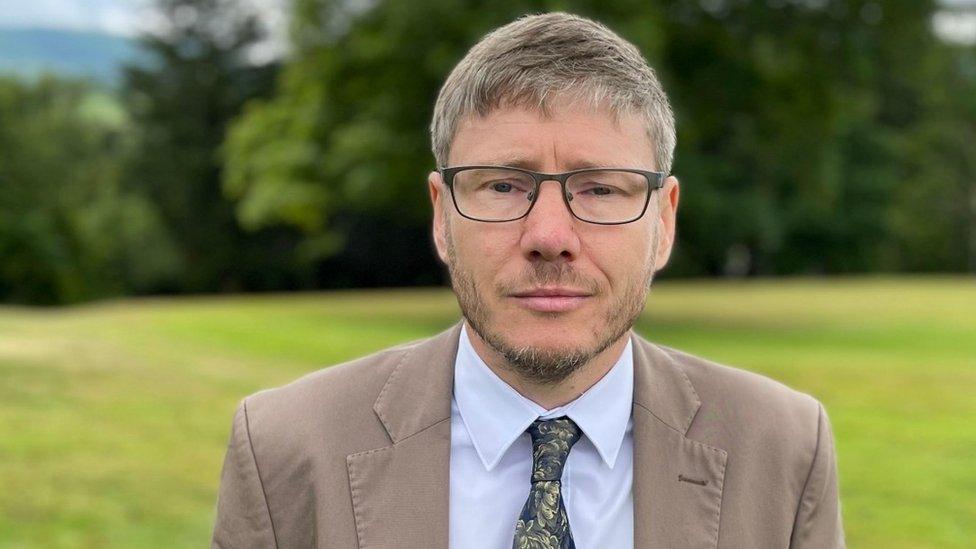
Kane Duffy say he can contribute to society now he has turned his life around
Kane Duffy, from Edinburgh, has stayed clear of drugs for the last 14 years.
He started using heroin when he was 14 and was on a methadone prescription until his early 30s.
The 44-year-old broke free from drug use after a stay at the NHS-funded Lothian and Edinburgh Abstinence Project (Leap).
He now works as a specialist therapist at the Castle Craig rehab clinic.
He said: "All the time that I had taken from services, everything I was prescribed, every time the police had to intervene in my life… all of these things amount to a huge amount of money.
"I still don't like paying my council tax… but now I do pay my council tax. I pay my parking fines when I get them.
"I give back to society directly through the work I do and the taxes I provide. I don't cost the state anything now."

Prof Matheson was appointed to the Scottish Drug Death Taskforce , externalin 2019. The group has received £14m in funding over the last two years to tackle the rising number of overdose deaths.
It has introduced:
Training for Scottish Ambulance Service personnel in providing Take Home Naloxone, an overdose reversal drug, to 300 families
A Police Scotland Naloxone pilot that has seen the drug used 21 times
A number of one-stop shops for drug and treatment services and support in Ayrshire, Dundee and Edinburgh
However, the country's drug death rate is still expected to be among the worst in Europe.
Some frontline charities and critics of the Scottish government's approach to tackling the crisis have backed the Scottish Conservatives' Right to Recovery Bill, external.
The Tories say it will enshrine in law individuals' right to their chosen drug treatment, including residential rehabilitation services.
Prof Matheson said new medical assisted treatment standards should have an effect in the longer-term.
"It's about rapid access to care on the day of treatment. So if you reach out for treatment, you should be able to access it," she said.
"It's also about choice within treatment. So, for example, in some areas you might have only been offered methadone. That's quite limiting and it wouldn't happen in any other area of clinical practice.
"There was a postcode lottery and that's not on, in any area of care."
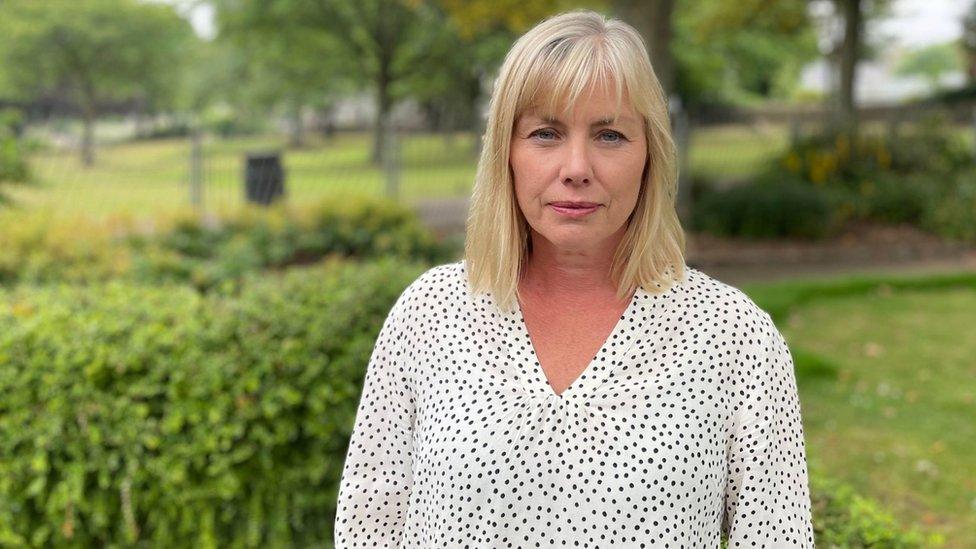
Prof Catriona Matheson is hopeful new national standards of care will make an impact in the longer term
She said this was partly down to resources and the fact that people across the country were not necessarily working together or sharing information.
"Hopefully, we have now been able to galvanise a national response," she added.
"The other thing that went wrong in the past was that nobody was held to account for delivering a certain standard of care.
"That will change now there is monitoring and evaluation of what is happening."
However, the task force has not been instructed to look at the effectiveness of residential rehab.
There are currently 408 rehab beds in Scotland. The Scottish government says it is studying whether to increase provision by 25% to 50% over the next five years.

How expensive is rehab?
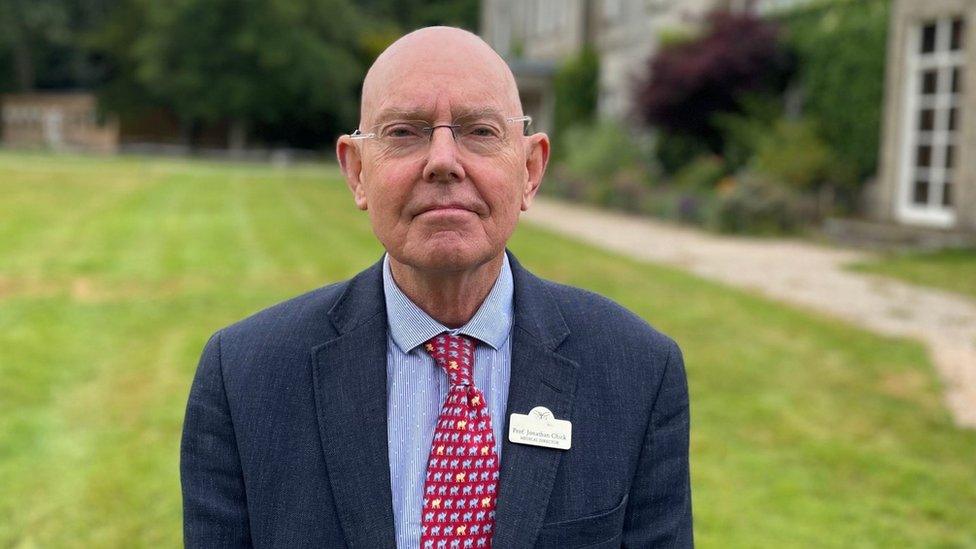
Prof Jonathan Chick says the services offered by clinics like Castle Craig are out of the reach of most families
Castle Craig rehab clinic, a private hospital, external near West Linton in the Scottish Borders, has treated people for alcohol and drug addiction for 30 years.
Of its current patient list of 60, only two are NHS-funded. Around a quarter of its clients are Dutch - reflecting the value placed on its services by insurers in the Netherlands - with the remainder being privately funded or via health insurance.
The weekly cost of treatment at the clinic ranges starts from £2,500.
Prof Jonathan Chick, who worked as a consultant psychiatrist for the NHS in Edinburgh, is now medical director at the facility.
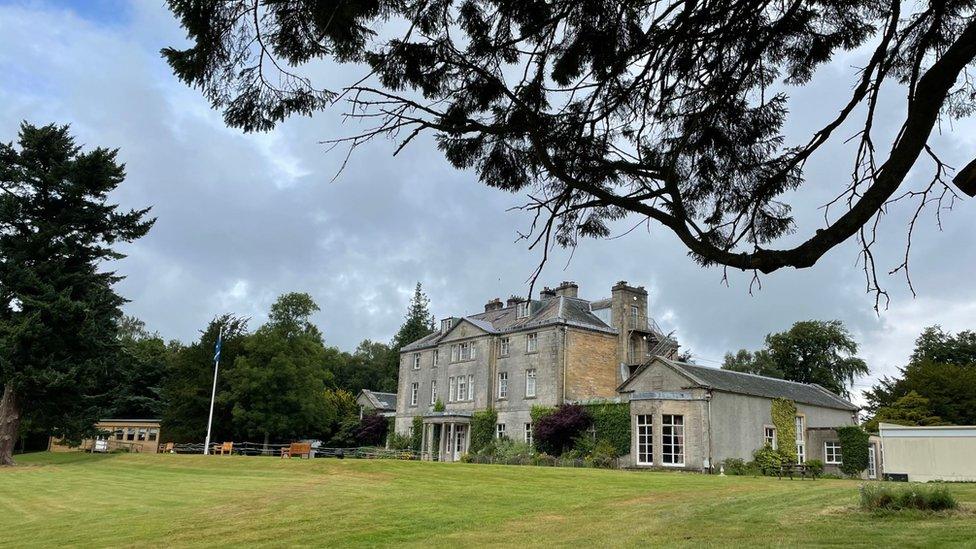
Castle Craig currently has 60 patients but only two are funded by the NHS
He told the BBC: "Compared with when Castle Craig was started, the proportion of Scottish patients - particularly those funded by the Scottish NHS - has fallen.
"It's been difficult for drug and alcohol workers to navigate the process which most of the regions have set up for determining who should be given funding for a residential intensive abstinence-oriented treatment.
"They recognise what we offer, they share our views on what is a very ideal and effective treatment for addiction. But they say they have limited funds.
"I think it is a great shame. There are tremendous opportunities here.
"It's out of the reach of most families, obviously, but it is not out of the reach of the services. They are providing quite expensive treatments for years and years and not looking at other opportunities."